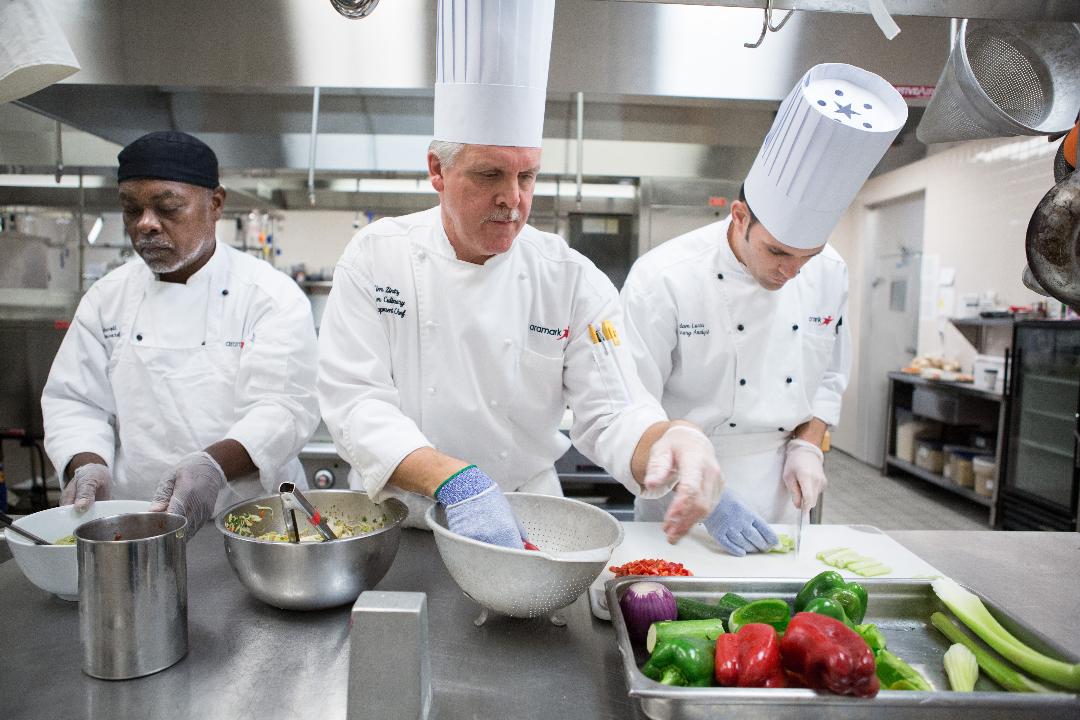Aramark CEO: Time to pink slip processed food at Fortune 500 cafeterias
Gone are the days of processed cafeteria food for many U.S. workers. Food service giant Aramark (NYSE:ARMK), which feeds over 85% of Fortune 500 companies, has been on a mission to overhaul corporate cafeterias across the country to make them healthier.
New cafeterias will feature more locally sourced, organic ingredients in custom-built personalization stations, so workers can build their own lunches — on-the-go. Additionally, more than 30% of the meals will now be vegetarian or vegan.
Goldman Sachs (NYSE:GS) was the first major corporation to sign up for the food makeover last year with other big names such as Eli Lilly (NYSE:LLY) and 3M (NYSE:MMM) joining shortly afterwards. But Aramark CEO Eric Foss says the mission to ditch processed, high fat foods is on the mind of every CEO he talks to.
“I sit on the CEO roundtable, and we actually took one of our culinary partners, Cat Cora, to our meeting and we showed them some of the [new] menu offerings that she’s prepared. A resounding 100% of CEOs that were there, were extremely excited, and basically made the point how quickly can we get these into our food offerings for our employees,” Foss tells FOX Business.
Foss, a former Pepsi (NYSE:PEP) executive who took the helm at Aramark in 2012, says the push to go healthy really came after he took the company public in 2013.
“Over that four-year time frame, we’ve had a great run, too, doubling our stock price,” he says. “[And as a company], it really gave us more resources to run some of the plays that we wanted to.”
One of their biggest plays is reducing calories in the company’s foods by 20% over the next three years, as part of a five-year partnership with the American Heart Association set in place back in 2015.
“There’s no doubt, we have a real problem and epidemic here, in terms of obesity in the U.S. – 70% of the population is either obese or eats unhealthy,” Foss says. “It really is a commitment for us by the year 2020 to take out some of the things that are bad for you. Things like saturated fat, calories, sodium and increase by 20% the things that are better for you, like fruit, vegetables and whole grains.
But Foss adds that as a $15 billion company that sells more than 2 billion meals per year – including to 100 million sports fans in stadiums across the country – not everyone is going to like its new “healthier” side and it plans to have a mix of both.
“You know, even if you have that offering available, in several of our venues you ending up finding consumers who stay with their tried and true hot dog.”




















